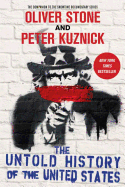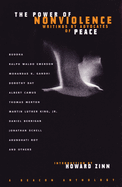 Einstein: The Life of a Genius by Walter Isaacson is the Royal Book of the Week. Duke Augustus just finished this book. The book is included among the Royal Books of the Week for the discussions in it of Einstein’s pacifist, socialist and internationalist politics. Up until World War II, he was a ardent pacifist. Einstein even called for 2% of all draftees to resist the draft to bring down the military culture. He believed strongly in a society where every citizen had a guarantee that her basic needs were met, but did not believe in a dictatorship of the proletariat to achieve it. With the unleashing of atomic energy, Einstein continually called for strong supranational organization that would prevent wars and the use of nuclear weapons. He and Bertrand Russell even co-authored a statement calling for such a supranational protection.
Einstein: The Life of a Genius by Walter Isaacson is the Royal Book of the Week. Duke Augustus just finished this book. The book is included among the Royal Books of the Week for the discussions in it of Einstein’s pacifist, socialist and internationalist politics. Up until World War II, he was a ardent pacifist. Einstein even called for 2% of all draftees to resist the draft to bring down the military culture. He believed strongly in a society where every citizen had a guarantee that her basic needs were met, but did not believe in a dictatorship of the proletariat to achieve it. With the unleashing of atomic energy, Einstein continually called for strong supranational organization that would prevent wars and the use of nuclear weapons. He and Bertrand Russell even co-authored a statement calling for such a supranational protection.
Einstein was above all a champion of individual freedom. He opposed totalitarian regimes on the right and the left. After the founding of the state of Israel he became a public supporter, but he also spoke out for the rights of the Palestinians. Einstein was a supporter of Civil Rights. He supported the Scottsboro Boys, and called opposed the death penalty for the Rosenbergs. He was an early critic of Sen. Joseph McCarthy, and called for intellectuals to refuse to testify before the House Un-American Committee based on their First Amendment rights.
When the author Isaacson steps onto the stage to give his own opinions, they are often those of the corporate media where he was a leader. Isaacson tries to paint Einstein’s politics as too radical, and his warnings as unnecessarily dire. Isaacson insists that American government is self-correcting. Isaacson does not take into account that such self-corrections have taken place only because of those like Einstein who were willing to risk everything to protect the country he loved. Continue reading Royal Book of the Week: Monday 8/1/11 →






